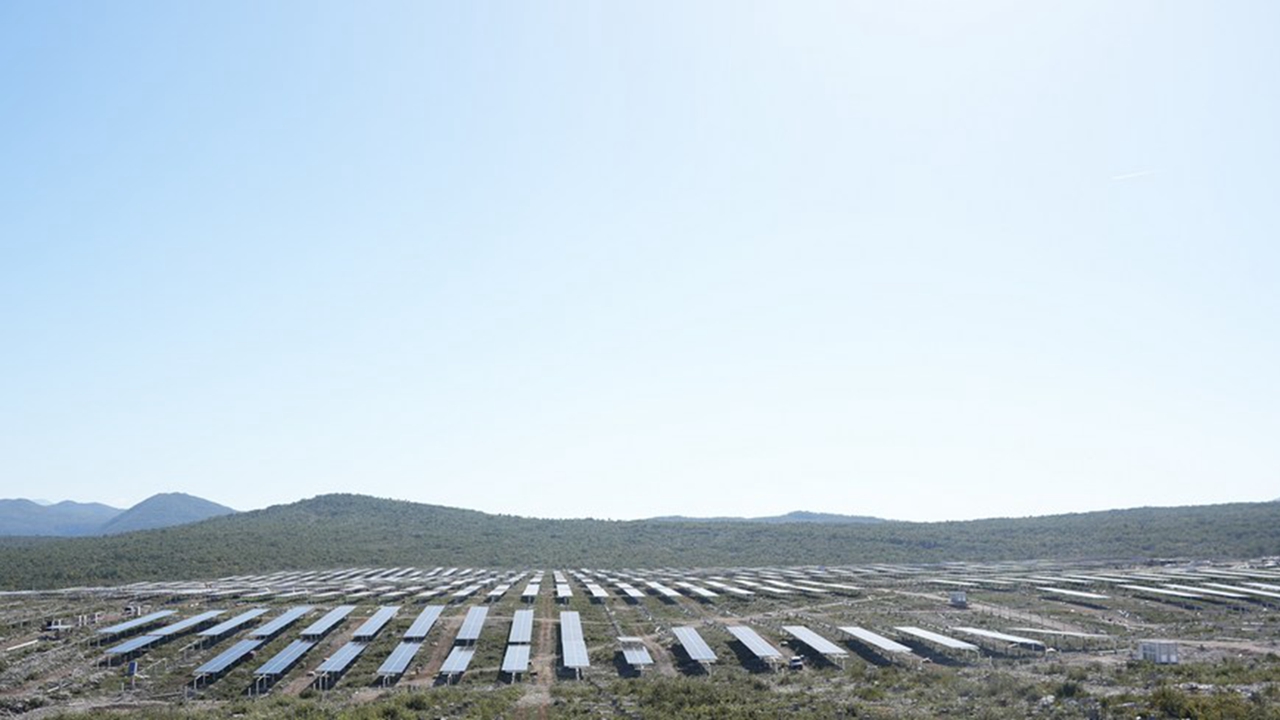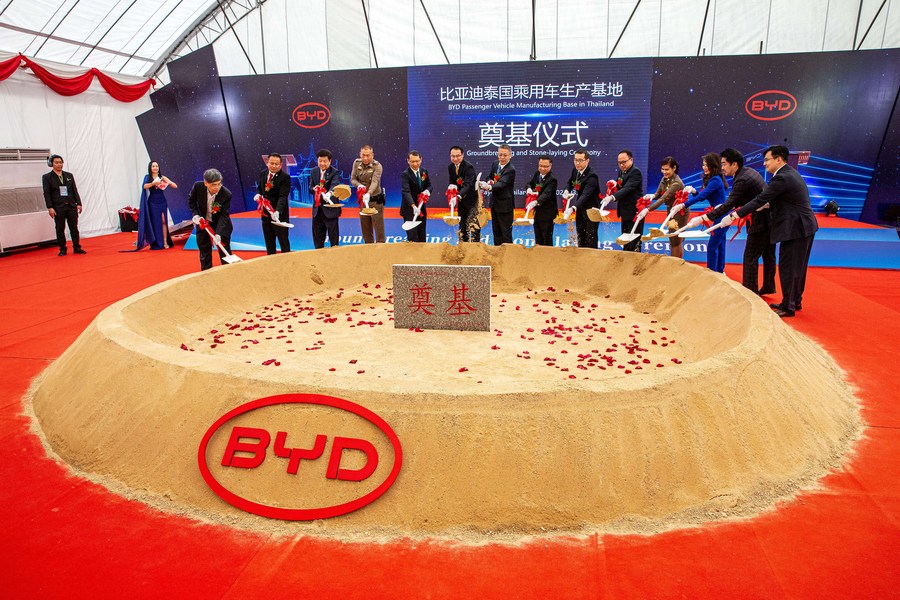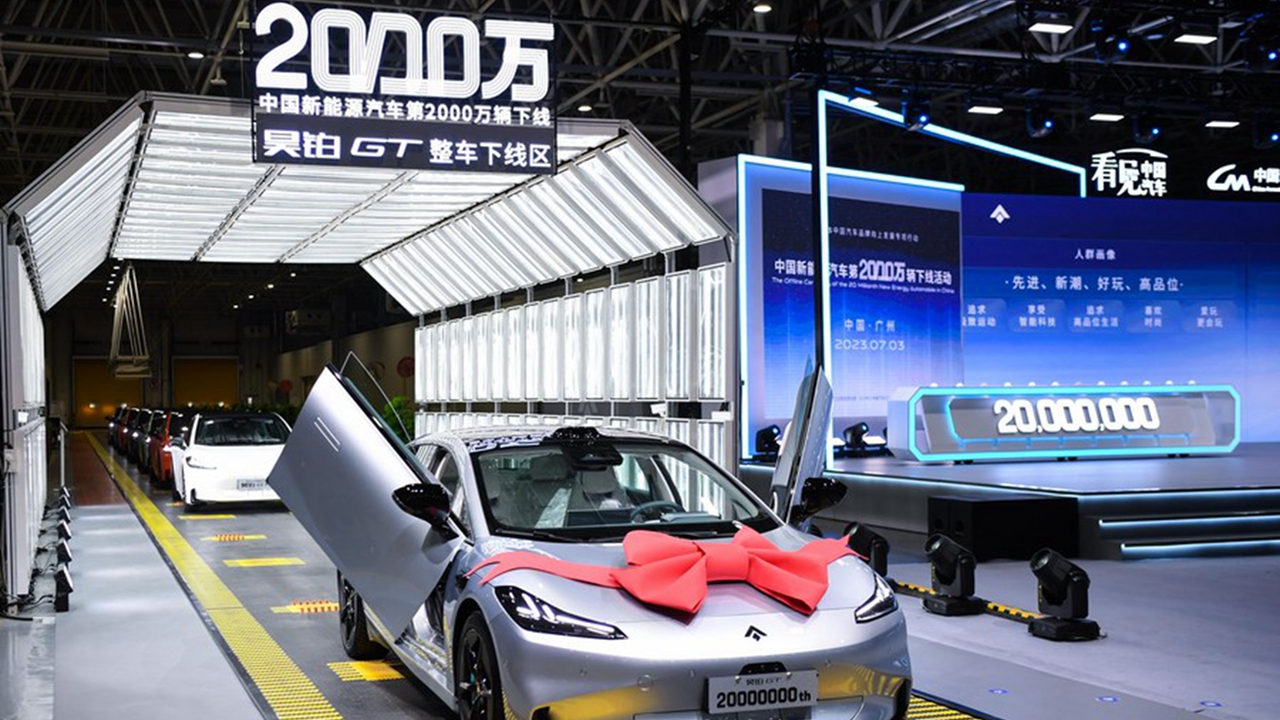Pursuit of new energy facilitates trade, green development
Writer: | Editor: Zhang Chanwen | From: | Updated: 2024-01-11
Once renowned for its traditional export products like silk and tea, south China's Guangdong Province has now emerged as a crucial global manufacturing hub as the country continues deepening reform and opening-up, prioritizing high-quality, innovation-driven and eco-friendly development.
Guangdong has made remarkable progress in exporting the three major tech-intensive green products, or the "new three" -- new energy vehicles (NEVs), lithium-ion batteries, and photovoltaic products, which witnessed year-on-year growth of 310 percent, 18.1 percent and 27.5 percent, respectively, during the first 11 months of 2023.
This shift from labor-intensive, low-value goods to tech-intensive, high-value products epitomizes China's dynamic foreign trade transformation. The export success of the "new three" not only propels China's trade but also invigorates global green development initiatives.

This photo taken on Oct. 12, 2023 shows a photovoltaic power station under construction in Bileca, Bosnia and Herzegovina. The solar panels and parts used in the power station are all imported from China. Photos from Xinhua
Path to green
A total of 40 brand-new electric buses of Chinese origin were put into use in the city of Antofagasta, northern Chile in early December 2023, marking the second region in that country to introduce electric vehicles as part of its public transport offering, following the capital city of Santiago.
Juan Carlos Munoz, Chile's Minister of Transport and Telecommunications, said the nation is modernizing transportation services by expanding electromobility to multiple regions. He said the NEVs will improve travel quality for all users as they are sustainable, environmentally friendly, and emission-free.
Latin American countries have become important markets for Chinese NEV exports. According to figures from the National Automotive Association of Chile, NEVs manufactured in China account for 51.6 percent of the country's electric vehicle sales in 2022.
Two years ago, Israel Aguilar, a resident of Mexico City, replaced his gasoline-powered car with an electric car from a Chinese automaker. Similarly, Carlos Rendon, a Mexican professional driver who had gathered most of his experience in diesel trucks, joined a transportation team of the Mexican brewery Grupo Modelo, which uses trucks produced by Chinese electric vehicle manufacturer BYD.
"With electric trucks, we reduce pollution in day-to-day operations, which is advantageous for new generations," said Rendon.
In the city of Pazardzhik in southern Bulgaria, vast solar panels are shining in the sun. All solar cell modules used in this solar park are from Chinese suppliers.
Chinese investment in Bulgaria plays an increasingly important role in areas such as the construction of photovoltaic industrial parks, according to former Bulgarian Deputy Prime Minister Daniela Bobeva.
"There is great potential for cooperation between China and Bulgaria, as well as Central and Eastern European countries, in the field of green economy," said Bobeva.

Participants attend the groundbreaking ceremony of BYD Passenger Vehicle Manufacturing Base in Thailand, in Rayong, Thailand, March 10, 2023.
Building Momentum
In September 2023, a total of 1,580 BYD NEVs were shipped from the southern Chinese metropolis of Shenzhen to Thailand, setting a new record for the largest single shipment of new energy vehicles since the opening of the Xiaomo International Logistics Port. Also, in early December last year, 10 electric school buses produced by BYD were shipped from Shenzhen to the Americas.
Data showed that in the first three quarters of 2023, Shenzhen had exported lithium-ion batteries, NEVs, and photovoltaic products worth 49.65 billion yuan (about 6.94 billion U.S. dollars), 13.11 billion yuan, and 2.22 billion yuan, respectively, with respective growth rates of 24.1 percent, 432 percent, and 21 percent. These figures confirm that the "new three" continue to exert a strong influence.
Customs data showed that China's goods import and export had returned to positive territory in October last year, while the growth rate further increased to 1.2 percent in November, consolidating a stable and improving trend.
BYD's sales ranked first in the new energy vehicle market in Brazil in October 2023, with a share of 71.7 percent in the electric car market. In the first ten months of 2023, BYD became the cumulative sales champion of electric vehicles in Singapore, Thailand, and Colombia.
The "new three" are driving China's transformation into a trading powerhouse, providing strong support for stabilizing the macroeconomic landscape.
"Steadily expanding scale, continuously optimizing structure, and increasing international market share all attest to the high-quality development of China's foreign trade," said Zhuang Rui, executive dean of the Institute of International Economy at the University of International Business and Economics.

This photo taken on July 3, 2023 shows China's 20 millionth new energy vehicle (NEV), which is produced by GAC Aion New Energy Automobile Co., Ltd., in Guangzhou, south China's Guangdong Province.
Emphasis on tech
The "Made in China" brand is undergoing a transformative upgrade amidst global industrial chain restructuring, introducing a range of high-tech, high-value-added products, exemplified by the "new three," to the international market.
In late December 2023, Guangzhou's Huadu District saw the inauguration of a cutting-edge 16 GW photovoltaic module production line. A robotic arm at the end of this line is tasked with lifting a panel, thereby facilitating swift product inspection by a worker which takes only a few seconds.
This streamlined and efficient production process owes its success to substantial research and development investment. Sun Bin, deputy general manager of Gokin Solar Co., Ltd., the factory's owner, affirmed the company's commitment to increasing R&D investment, prioritizing product quality and contributing to the country's green transformation.
With robotic arms waving and installing components with speed and precision, the GAC Group's Aion new energy automotive factory is able to complete the assembly of an NEV in just 53 seconds.
Deputy general manager of GAC Aion Zheng Chunqi said the high-flexibility technology pack developed by the company allows the factory to raise its efficiency by 20 percent.
By seizing new technology opportunities such as new energy and digitization to drive the export growth of the "new three," China offers the world new development options, and remains a crucial engine for global economic growth, said Zhang Yansheng, chief researcher at the China Center for International Economic Exchanges. (Xinhua)